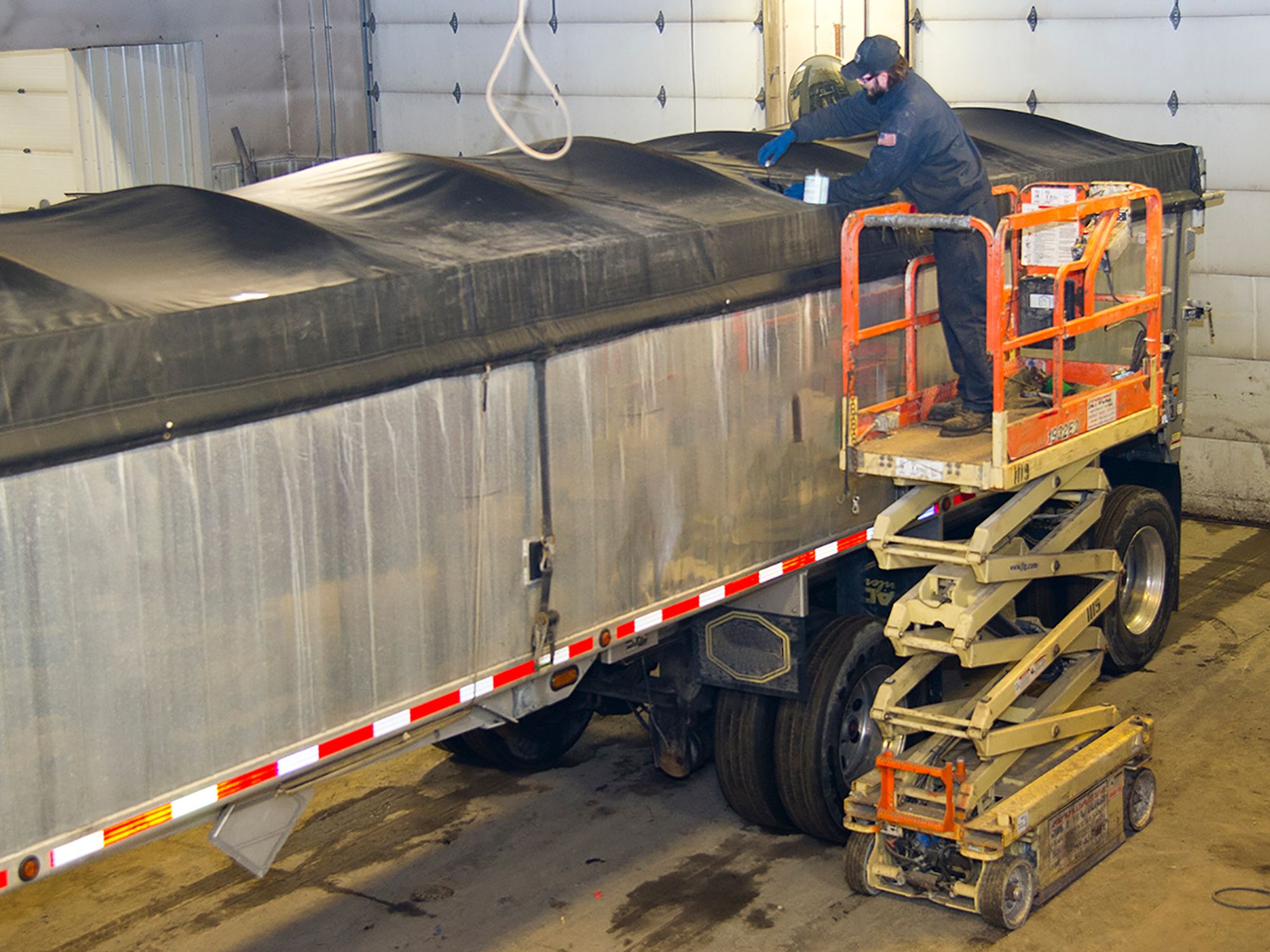InstituteVehicle maintenanceCMV Parts and MaintenanceTransportationFocus AreaFleet OperationsEnglishAnalysisIn Depth Sub Topics (Level 4)USA
Sample PM schedule: Trailers and auxiliaries
['CMV Parts and Maintenance']

- Trailers are subject to the same regulations as the vehicles that pull them and should be subject to the same type of PM program.
- Auxiliary power units, refrigeration units, wet kits, hydraulic pony engines, lavatory systems (in motorcoaches), and idle reduction equipment all need to undergo the same PM scheduling process as the vehicles and trailers.
Don’t forget the trailers!
Trailers are subject to the same regulations as the vehicles that pull them and should be subject to the same type of PM program. Typical preventive maintenance (PM) scheduling for a trailer is:
- T1 or TA services are scheduled every three months. This PM service includes an inspection and lubrication, including a check of (at a minimum) the lights, tires, brakes, coupling devices, safety equipment, and any other “systems” (refrigeration unit, sliding axles, etc.).
- T2 or TB PMs are scheduled every six months. This PM service includes all the items of a T1, and a more in-depth inspection, as well as additional maintenance (pulling off hubcaps to check grease condition, retorquing lugs, etc.).
- T3 or TC services are normally scheduled annually. These include all the inspection and maintenance included in a T1 and T2 service, along with more extensive maintenance such as an alignment or complete brake overhaul. Some carriers will also perform the periodic (annual) inspection required under 396.17 as part of the Type T3 service.
Also, don’t forget the auxiliaries!
Auxiliary power units (APUs), refrigeration units, wet kits, hydraulic pony engines, lavatory systems (in motorcoaches), and idle reduction equipment all need to undergo the same scheduling process as the vehicles and trailers. The maintenance scheduling for these units can be rolled into the vehicle they are associated with. Examples would be servicing the wet kit on a vehicle each time the vehicle is serviced and servicing an APU as part of an annual inspection.
